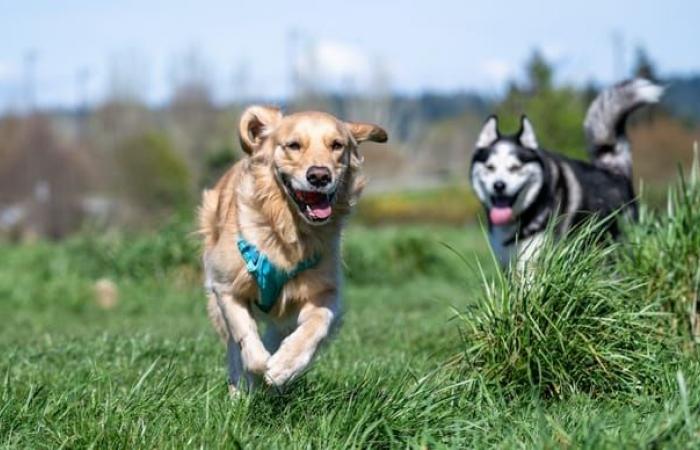Caused by a virus, this pathology is well known. It mainly affects wild boars. But it can affect hunting dogs in close contact with these wild animals. Why, how and what to do? We tell you everything.
What is Aujeszky’s disease?
Aujeszky’s disease is a viral disease caused by a herpes virus. It concerns pigs and wild boars, and exceptionally dogs and cats as well as cows, sheep and even horses. Humans are not affected.
Also see:
This pathology is very contagious. Pigs and wild boars become contaminated through nasal and oral secretions. They can also infect their environment. Animals present with cough, fever, itching and nervous symptoms. They die quickly.
If France is officially free of Aujeszky’s disease in pig farming, the virus circulates in wild boars.
This disease is named after the Hungarian veterinarian (Aladár Aujeszky) who first identified the virus. There is a vaccine intended for farmed pigs, but which is not marketed in France (because the disease is not present there).
It is mainly hunting dogs that are affected. They become infected from wild boars, mainly by ingesting the viscera of sick animals. It is therefore during wild boar hunts that dogs become contaminated when they bite an animal carrying the virus.
Every year, we witness a regular resurgence of cases involving dogs in France during the hunting season. At the end of 2024, canine cases were reported in Ariège and Dordogne. In the latter department, contaminated farmed wild boars had to be slaughtered. In September, infected wild boars were spotted in Loire et Cher. No region hosting wild boars is therefore spared. Cases of sick dogs have also been recorded in Belgium.
Given the steady increase in the wild boar population, it is possible that this disease will become more talked about in the future.
A question? An experience to share? Create your post!
What are the symptoms of Aujeszky’s disease in dogs?
In canines, this herpes virus triggers encephalomyelitis (infection of the brain and spinal cord) which is quickly fatal. After an incubation of a few days, the dog presents serious symptoms resembling those of rabies (this is why it is also called Aujeszky’s disease, pseudo-rabies):
- Reduction
- Change in behavior, aggression
- Insane itching, especially on the head
- Hypersalivation (due to paralysis of the larynx)
- Paralysis
Death occurs within 48 hours. There is no treatment.
The veterinarian generally makes the diagnosis based on the symptoms and the dog’s lifestyle (hunting dog having had recent contact with wild boars). The presence of very violent itching is quite characteristic. In case of doubt, samples highlight the herpes virus and rule out a risk of rabies.
The main mode of contamination concerns wild boars and wild boar meat. It is therefore advisable to:
- Prevent your dog from approaching a wild boar or a carcass
- Do not feed him raw meat (the virus is killed by the heat of cooking) or wild boar offal.
- Keep him on a leash in the forest in regions where cases have been reported
Don’t panic, the risk is very low in pet dogs. The cases recorded concern exclusively hunting dogs. However, you must remain vigilant with sporting dogs who do not hesitate to venture far from their master or follow the trail of a wild animal. It is not completely excluded that they come across a contaminated wild boar carcass before their human can reattach them.
For hunting dogs, it is possible to benefit from one of the vaccination campaigns set up by certain veterinarians who import the vaccine from abroad. The dog is then injected with the pig vaccine. However, the effectiveness is not total and the injection must be renewed every year. After the cases reported at the end of last year, 600 hunting dogs were vaccinated.
It should be noted that Aujeszky’s disease is far from being the worst danger facing animals hunting wild boar. This activity is one of the riskiest and many dogs are killed or seriously injured each year by the tusks of these wild and combative animals during hunts.






